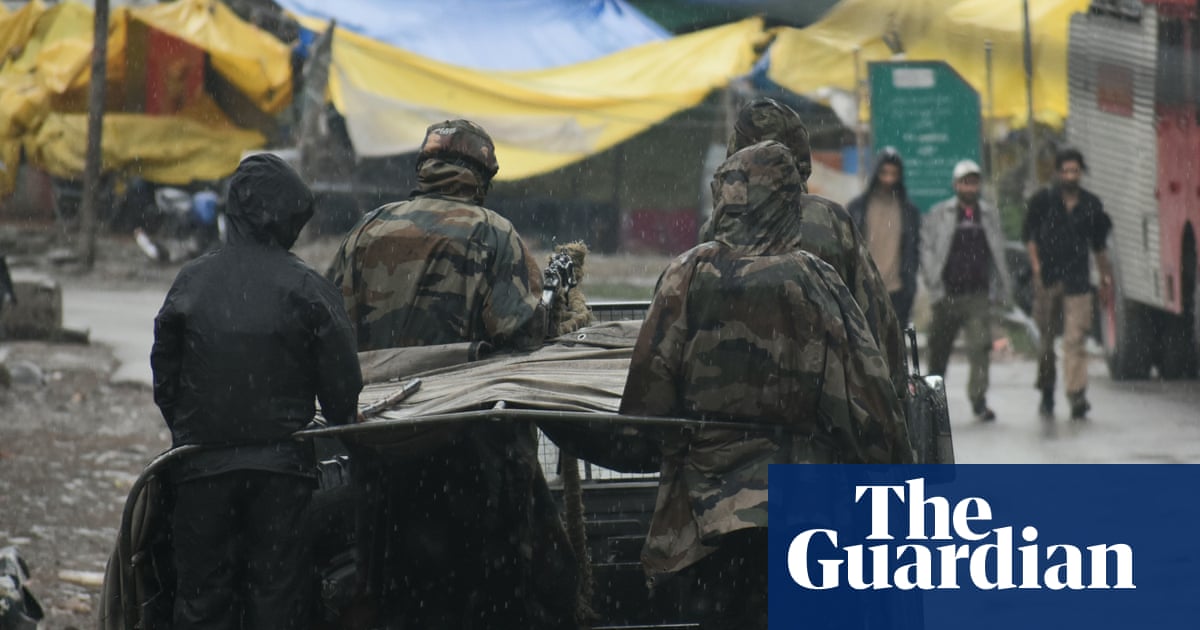Meta has banned a prominent Muslim news page onInstagramin India at the government’s request, the account’s founder said on Wednesday, denouncing the move as “censorship” as hostilities escalate betweenIndiaandPakistan.
Instagram users in India trying to access posts from the handle @Muslim – a page with 6.7 million followers – were met with a message stating: “Account not available in India. This is because we complied with a legal request to restrict this content.”
There was no immediate reaction from the Indian government on the ban, which comes after access was blocked to the social media accounts of Pakistani actors and cricketers.
“I received hundreds of messages, emails and comments from our followers inIndia, that they cannot access our account,” Ameer Al-Khatahtbeh, the news account’s founder and editor-in-chief, said in a statement. “Meta has blocked the @Muslim account by legal request of the Indian government. This is censorship.”
Meta declined to comment. A spokesperson for the tech giant directed Agence France-Presse to a company webpage outlining its policy for restricting content when governments believe material on its platforms goes “against local law”.
The development, first reported by the US tech journalist Taylor Lorenz’s outlet User Magazine, comes in the wake of the worst violence between nuclear-armed India and Pakistan in two decades.
Both countries have exchanged heavy artillery fire along their contested frontier, after New Delhi launched deadly missile strikes on its arch-rival.
At least 43 deaths were reported in the fighting, which came two weeks after New Delhi blamed Islamabad for backing a deadly attack on tourists in the Indian-run side of the disputed Muslim-majority region of Kashmir.
Pakistan rejects the charge and has warned it will “avenge” those killed by Indian airstrikes.
The @Muslim account is among the most followed Muslim news sources on Instagram. Khatahtbeh apologized to followers in India, adding: “When platforms and countries try to silence media, it tells us that we are doing our job in holding those in power accountable.
“We will continue to document the truth and stand out firmly for justice,” he added, while calling on Meta to reinstate the account in India.
Sign up toTechScape
A weekly dive in to how technology is shaping our lives
after newsletter promotion
India has also banned more than a dozen Pakistani YouTube channels for allegedly spreading “provocative” content, including Pakistani news outlets.
In recent days, access to the Instagram account of Pakistan’s former prime minister and cricket captain Imran Khan has also been blocked in India.
Pakistani Bollywood movie regulars Fawad Khan and Atif Aslam were also off limits in India, as well as a wide range of cricketers – including star batters Babar Azam and Mohammad Rizwan and retired players Shahid Afridi and Wasim Akram.
Rising hostilities between the south Asian neighbors have also unleashed an avalanche of online misinformation, with social media users circulating everything from deepfake videos to outdated images from unrelated conflicts, falsely linking them to the Indian strikes.
On Wednesday, Donald Trump called for India and Pakistan to immediately halt their fighting, and offered to help end the violence.
